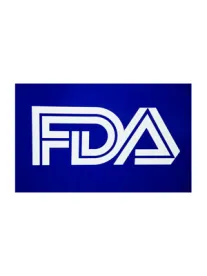Last month, President Trump signed the FDA Reauthorization Act of 2017 (FDARA), which included user fee provisions to partially fund FDA’s operations, but also provisions bearing on the regulation of pediatric and generic drugs and medical devices. The changes to medical device regulation include changes to FDA inspections of medical device manufacturers.
FDARA § 701 amends § 510(h) of the Food, Drug and Cosmetic (FDC) Act, 21 U.S.C. § 360(h), to require the FDA to implement a risk-based schedule for inspecting manufacturers of Class II and Class III devices. Previously, § 510(h) required manufacturers of class II and class III devices to be inspected every two years. Also, § 510(h) now includes a fifth risk factor limited to devices – whether a manufacturer participates in international device audit programs that the United States participates in or recognizes – to accompany the prior four risk factors, which are compliance history, recall history, inherent risk of the device and inspection history.
FDARA § 702 amends § 704 of the FDC Act, 21 U.S.C. § 374, which now requires the FDA to make routine (not “for cause”) inspections uniform, with exceptions “as appropriate.” The amendments also require FDA to do the following:
-
provide advance notice of routine inspections, including the type and nature of the inspection
-
provide a reasonable estimate of the timeframe for the inspection, an opportunity for advance communications between the FDA personnel carrying out the inspection and the owner, operator, or agent in charge of the establishment concerning appropriate working hours during the inspection, and, to the extent feasible, advance notice of some records that will be requested
-
provide regular communications during the inspection with the owner, operator, or agent in charge of the establishment regarding the status of the inspection. The communications may be recorded by either party with advance notice and mutual consent.
Another amendment relevant to medical device inspections requires FDA to provide “non-binding feedback,” within 45 days of a timely request, on a manufacturer’s proposed response to observations on an inspection report “that involve a public health priority, that implicate systemic or major actions, or relate to emerging safety issues….”
The FDA must issue draft guidance specifying how it will implement these amendments within 18 months of FDARA becoming law and final guidance within another year.
FDARA includes other amendments to the FDC Act relevant to medical device manufacturers, including provisions related to FDA’s issuance of Certificates to Foreign Governments, recognition of foreign auditing organizations, innovations in medical imaging, risk-based classification of accessories, pilot projects on postmarket data and real world data, and regulation of OTC hearing aids.



 />i
/>i

